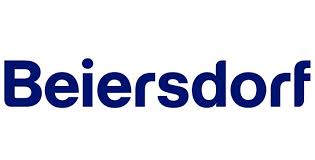Beiersdorf Q3 2024 $BEI (-0,06%)

Financial performance: Beiersdorf recorded solid organic sales growth of 6.5% in the first nine months of 2024, reaching sales of €7.5 billion. The Consumer Business Segment made a significant contribution to this, with growth of 7.3% and sales of €6.3 billion. The tesa business segment also made a positive contribution, with growth of 3.1%, corresponding to sales of 1.3 billion euros.
Balance sheet analysis: Strong sales growth combined with strategic investments in innovation indicate a solid financial position. The focus on a balanced growth strategy across regions and segments speaks for prudent financial management.
Income statement: The income statement shows significant growth in key brands, with NIVEA achieving organic sales growth of 9.4% and the derma brands Eucerin and Aquaphor achieving growth of 8.8%. However, La Prairie recorded a decline of 7.3 % due to challenges in the Chinese market.
Cash flow analysis: The company's ongoing investment in innovation and market expansion, such as the launch of Epicelline, indicates a strategic allocation of financial resources to support growth initiatives.
Key factors and profitability: The EBIT margin of the Consumer business segment is expected to increase by 50 basis points compared to the previous year, indicating improved profitability despite challenges in the luxury segment.
Segment analysis:
- Consumer Business Segment: Achieved organic sales growth of 7.3%, driven by strong performances in North America and emerging markets.
- tesa Business Segment: Recorded growth of 3.1%, despite difficulties in the automotive sector, but with positive developments in electronics and packaging.
Competitive analysis: Beiersdorf's focus on innovation, for example through the launch of Epicelline, gives the company an advantage over its competitors. However, the luxury segment, especially La Prairie, faces intense competition and market problems in China.
Forecasts and management comments: The company confirms its forecast for the full year with organic sales growth of 6-8% for the Group and the consumer segment. Management remains optimistic for the fourth quarter and expects a strong performance driven by innovation and market expansion.
Risks and opportunities:
- Risks: Continued weakness in the Chinese luxury market and challenges in the automotive sector could impact growth.
- Opportunities: A strong innovation portfolio, particularly in the derma segment, and expansion into emerging markets offer significant growth opportunities.
Summary and strategic implications: Beiersdorf's strategic focus on innovation and market expansion has led to strong growth in 2024. The company's ability to adapt to market changes, especially in the luxury segment, will be crucial to sustain growth. The robust performance of NIVEA and the Derma brands, coupled with strategic investments in new product launches, positions Beiersdorf well for success. Management's commitment to maintaining a balanced growth strategy and using innovation as a competitive advantage will be critical to mastering market dynamics and achieving long-term goals. However, the question remains what to do with Tesa, because in my opinion it does not fit the group at all and the market will not get any easier from here.
Positive statements:
- Beiersdorf recorded strong organic sales growth of 6.5% in the first nine months of 2024, with the Consumer business area achieving growth of 7.3%.
- The iconic brand NIVEA showed an outstanding performance with organic sales growth of 9.4% in the first nine months of 2024.
- The derma brands Eucerin and Aquaphor achieved organic sales growth of 8.8% in the first three quarters, driven by double-digit growth on a global level and an excellent performance in North America.
- Beiersdorf's breakthrough anti-aging innovation, Epicelline, achieved exceptional sales results just a few weeks after its launch in September.
- The tesa division recorded solid growth of 3.5% in the third quarter despite increasing challenges in its key sectors.
Negative statements:
- La Prairie luxury brand sales declined 7.3% organically in the first three quarters, mainly due to continued weakness in the Greater China market.
- The decline in the Chinese luxury and travel retail market in the third quarter significantly impacted La Prairie's sales.
- The automotive industry, particularly in Europe and in the area of e-mobility, continues to suffer, which is impacting tesa's business.
- The tesa consumer segment recorded lower customer footfall in DIY stores due to subdued consumer sentiment in Europe.
- Beiersdorf's involvement in the luxury segment in China is limited, as less than 5% of sales come from this area, which limits the opportunities to exploit growth options in the luxury market.

